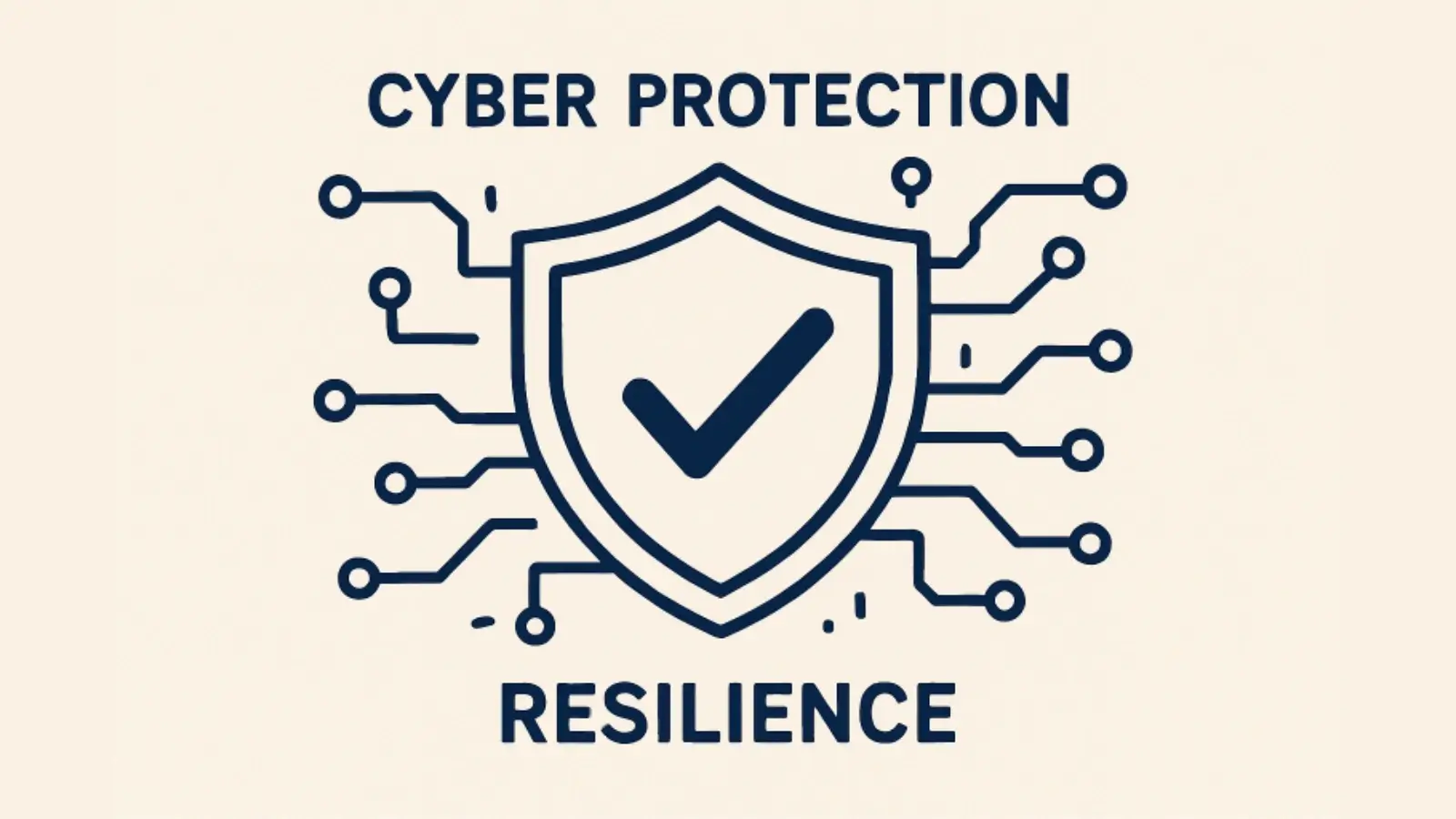As small businesses increasingly rely on cloud services to store and manage their data, ensuring the security of that data has become more critical than ever. Cloud computing offers numerous benefits, such as flexibility, scalability, and cost efficiency, but it also introduces significant cybersecurity risks. Cyber threats, including data breaches, ransomware attacks, and unauthorized access, can compromise sensitive information, potentially resulting in financial and reputational damage.
Implementing robust cloud cybersecurity practices is essential for small business owners to safeguard their assets and maintain customer trust. However, many small businesses are unaware of these risks or unsure how to begin securing their cloud environments. Addressing these challenges requires a proactive approach, which includes selecting the right cloud provider, enforcing strong security measures, and educating employees. Engage with IT Support Provider in Sacramento experts to implement effective cloud cybersecurity measures that protect your business’s critical infrastructure and assets.
In this blog, we will explore essential steps that small business owners can take to enhance cloud cybersecurity and protect their businesses from evolving threats.
Why is Cloud Cybersecurity Important for Small Businesses?
Cloud cybersecurity is vital for small businesses as it protects sensitive data from cyber threats. Handling valuable customer information and financial data makes them prime targets for cybercriminals. A security breach can result in economic losses, legal issues, and reputational damage.
Small businesses often lack the resources to recover from significant attacks, making robust cloud security essential. Implementing strong measures like encryption, multi-factor authentication, and regular monitoring helps mitigate risks and ensures the safe use of cloud tools.
8 Essential Steps to Strengthen Cloud Cybersecurity for Small Businesses
-
Assess Your Current Cloud Security Posture
Assessing your current cloud security posture is a critical step in strengthening cybersecurity for small businesses operating in the cloud. By evaluating the effectiveness of your existing security measures and identifying any vulnerabilities or areas for improvement, you can proactively address potential risks and enhance your overall security posture.
A comprehensive assessment will involve reviewing your security policies, procedures, access controls, encryption methods, and monitoring systems to ensure they align with industry best practices and regulatory requirements. Regular audits and assessments can help you avoid evolving cyber threats and better protect your business data stored in the cloud.
-
Choose a Reliable Cloud Service Provider
Choosing a reliable cloud service provider is crucial in strengthening cloud cybersecurity for small businesses. When entrusting your data to a cloud service, it is essential to ensure that the provider has robust security measures to safeguard your information. Conduct thorough research on potential cloud service providers, considering factors such as data encryption protocols, access controls, compliance certifications, and disaster recovery plans.
Prioritize providers with a proven track record of maintaining high levels of security and reliability. By partnering with a reputable cloud service provider, small businesses can effectively enhance their cybersecurity posture and protect against potential cyber threats. If you want to choose the most reliable cloud service provider, contact the Managed IT Services Sacramento team.
-
Implement Strong Authentication and Access Control
Implementing strong authentication and access control measures is vital for strengthening cloud cybersecurity for small businesses. By requiring multiple factors for user verification, such as passwords, biometrics, or security tokens, companies can significantly reduce the risk of unauthorized access to sensitive data stored in the cloud.
Additionally, enforcing strict access controls based on roles and responsibilities ensures that employees only have access to the information necessary for their job functions. By implementing these essential steps, small businesses can enhance their cybersecurity posture and protect their valuable digital assets from potential cyber threats.
-
Encrypt Sensitive Data
Securing sensitive information through encryption is vital to enhancing cloud cybersecurity for small businesses. By implementing encryption, organizations can safeguard confidential data from unauthorized access and potential breaches.
Encryption transforms data into a protected format that can only be decoded with the correct decryption key, making it unavailable to unauthorized individuals even if captured. Applying encryption protocols to sensitive information saved in the cloud offers an added layer of protection, securing critical business information and maintaining customer trust.
-
Regularly Update and Patch Systems
Regularly updating and patching systems is a crucial step in strengthening cloud cybersecurity for small businesses. Software updates often include security patches that address vulnerabilities and protect against potential cyber threats. By ensuring that all systems are up to date, businesses can reduce the risk of exploitation by cybercriminals seeking to breach their cloud infrastructure.
Establishing a routine system maintenance and update schedule is essential to maintaining a strong defense against evolving cybersecurity risks in the cloud environment. As small businesses rely more on cloud services for data management, regularly updating and patching infrastructure is essential for strong cybersecurity.
-
Monitor Cloud Environments Continuously
Monitoring cloud environments continuously is an essential step in strengthening cybersecurity for small businesses. With the increasing reliance on cloud services, it is crucial to keep a vigilant eye on the security of your data and applications. Continuous monitoring allows businesses to promptly detect suspicious activities, potential vulnerabilities, or unauthorized access.
By implementing robust monitoring tools and practices, small businesses can proactively identify and address security threats before they escalate into significant breaches. Establishing clear protocols for monitoring cloud environments and regularly reviewing logs and alerts are recommended to ensure the integrity of your data and operations.
-
Educate Employees on Cloud Security Best Practices
Educating employees on cloud security is a crucial step in strengthening cybersecurity for small businesses operating in the cloud. With the increasing reliance on cloud services, all staff members should understand the importance of maintaining secure practices when handling sensitive data.
Training sessions should cover topics such as creating strong passwords, identifying phishing attempts, and recognizing potential security threats. By promoting a culture of cybersecurity awareness within your organization, you can significantly reduce the risk of data breaches and cyber-attacks. Remember, a well-informed team is one of the best defenses against potential security vulnerabilities in the cloud environment.
-
Develop a Cloud Disaster Recovery Plan
Developing a cloud disaster recovery plan is an essential step in strengthening cybersecurity for small businesses operating in the cloud. A robust disaster recovery plan outlines procedures to follow during a cyber incident or data breach, ensuring that critical business operations can be restored quickly and efficiently.
When creating a cloud disaster recovery plan, businesses should consider data backup strategies, system redundancies, response protocols, and communication plans. By proactively developing and regularly testing a comprehensive disaster recovery plan, small businesses can minimize downtime, protect sensitive information, and maintain operational resilience in the face of potential cyber threats.
Conclusion
Cloud cybersecurity is a vital component for small businesses to ensure the safety and privacy of their data in an increasingly digital world. By understanding the risks and implementing key security measures, such as selecting a secure cloud provider, encrypting data, using multi-factor authentication, and regularly monitoring cloud activities, small business owners can protect their assets and reduce the likelihood of cyberattacks. Investing in cloud cybersecurity safeguards the business from potential threats, builds customer trust, and supports long-term growth.

















